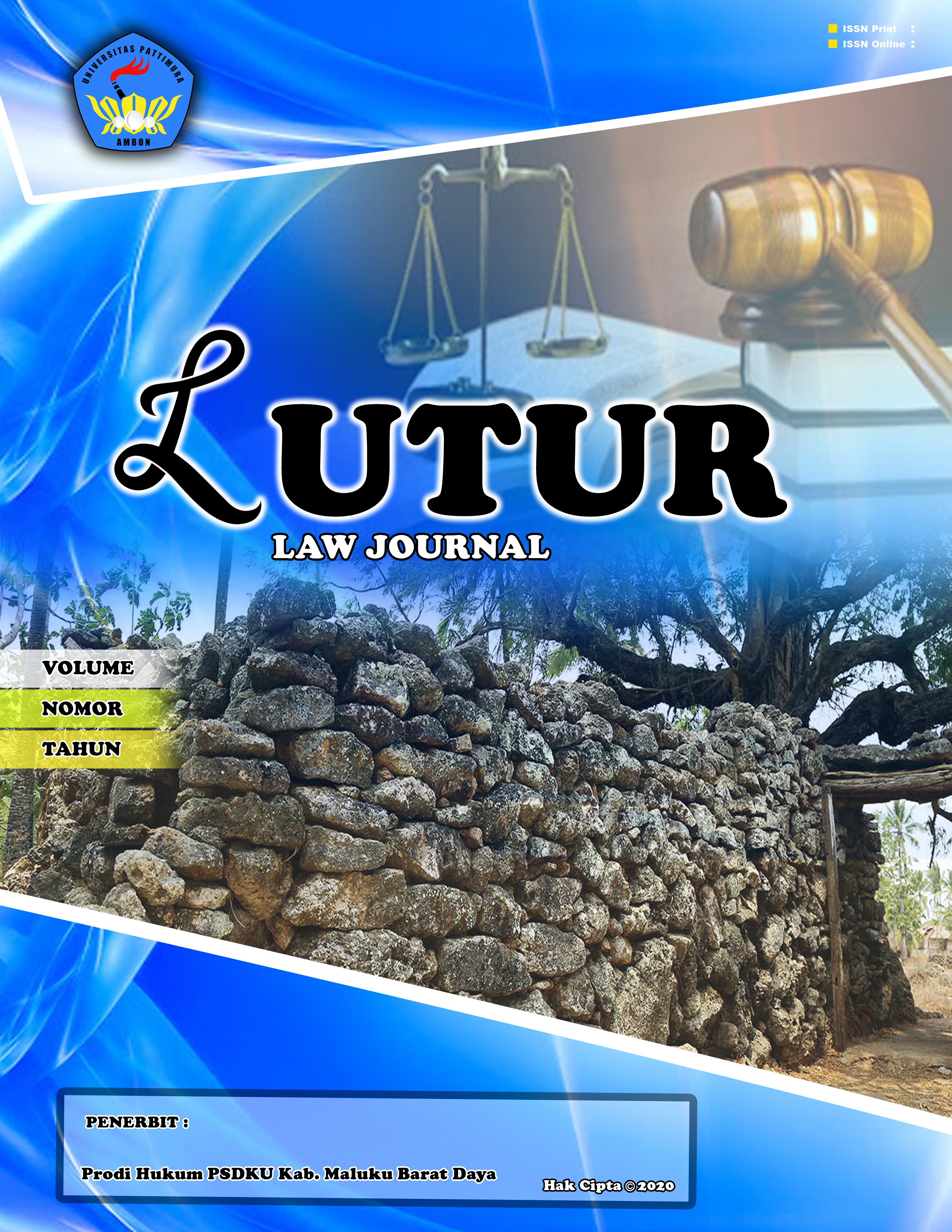The Effect of the Constitutional Court Decision Number: 46/PUU-VIII/2010 on the Inheritance Rights of Out-of-Wedlock Children in Islamic Inheritance Law
Abstract
This article examines the issue of inheritance rights for out-of-wedlock children from the perspective of Islamic law and Indonesian national law, particularly in the aftermath of Constitutional Court Decision Number: 46/PUU-VIII/2010, which marked a shift in the recognition of the civil status of out-of-wedlock children in relation to their biological fathers. This article aims to analyze the impact of Constitutional Court Decision Number: 46/PUU-VIII/2010 on the legal inheritance status of out-of-wedlock children within the frameworks of Islamic law and Indonesia’s national legal system. This study employs a normative juridical method with a statutory and conceptual approach. Data sources include primary and secondary legal materials. The research findings indicate that the Constitutional Court decision grants civil legal recognition to out-of-wedlock children with regard to their biological fathers, provided that the relationship can be proven through scientific means or valid legal evidence. This ruling broadens the inheritance rights of out-of-wedlock children under national law. However, in Islamic legal tradition, lineage (nasab) remains the principal basis for inheritance, leading to a tension between sharia principles and state law. The decision also opens a discourse on the harmonization of Islamic law and national law in order to protect the rights of children.
Downloads
References
Abdul Wahab Khlaf, Ilmu Ushul al-Fiqh, Kairo: Maktabah al-Dakwah al-Islamiyah Shabab al-Azhar, 1990.
http://www.hukumonline.com/klinik/detail/lt4ff514fbcefcd/apakah-anak-hasil-perkawinan- Siri-Right-Inheritance.
Jumni Nelli, “Putusan Mahkamah Konstitusi Tentang Status Anak di Luar Perkawinan dan Relevansinya pada Pembaharuan Hukum Keluarga Milenial di Indonesia”. Hukum Islam 21, no 1, (2021).
Lina Nur Anisa, “Status Hak Anak Diluar Nikah Pasca Putusan Mahkamah Konstitusi Republik Indonesia (RI) Nomor: 46/PUU-VIII/2012”. Investama: Jurnal Ekonomi dan Bisnis 7, no 1, (2022).
Muhammad Jawad Mughniyah, Fiqih Lima Mazhab, Jakarta: Lentera, 2007.
Nur Shadiq Sandimula, “Status Dan Hak Anak Luar Nikah Perspektif Madzhab Hanafi”. An –Nizam: Jurnal Hukum dan Kemasyarakatan 14, no. 01 (2020).
Peter Mahmud Marzuki, Legal Research, Jakarta: Kencana, 2013.
R. Soetojo Prawirohamidjojo, Hukum Waris Kodifikasi, Surabaya: Airlangga University Press, 2000.
Wahbah Zuhaili, Fiqh Islam wa Adillatuhu, Damaskus: Dar al-Fikr, 2007.
Copyright (c) 2025 Dwi Anggriani Salsabila A A Sanmas, Novyta Uktolseja, Muchtar Anshary Hamid Labetubun (Author)

This work is licensed under a Creative Commons Attribution-NonCommercial 4.0 International License.
Authors who publish their manuscripts in this Journal agree to the following conditions:
- The copyright in each article belongs to the author, as well as the right to patent.
- Authors are able to enter into separate, additional contractual arrangements for the non-exclusive distribution of the journal's published version of the work (e.g., post it to an institutional repository or publish it in a book), with an acknowledgment of its initial publication in this journal.
- Authors are permitted and encouraged to post their work online (e.g., in institutional repositories or on their website) prior to and during the submission process, as it can lead to productive exchanges, as well as earlier and greater citation of published work.
- Authors have the right to self-archiving of the article (Author Self-Archiving Policy)














